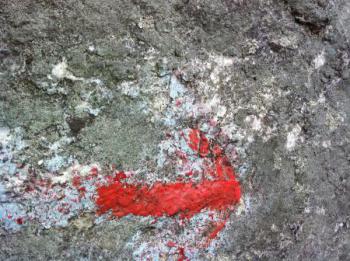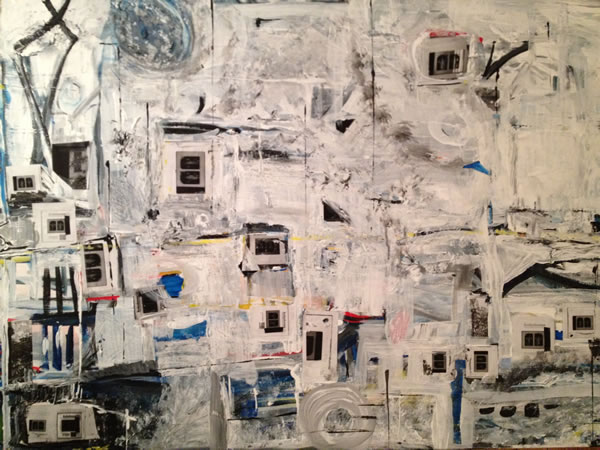Serendip is an independent site partnering with faculty at multiple colleges and universities around the world. Happy exploring!
education
Clark Reading--class reflection
In class, our group discussed Clark’s cyborg readings and how that played into our feelings towards the class. There was a general consensus amongst the people in our group that the Clark reading was more confusing rather than informative. The main reason I think this is, is the writing style that Clark adopts. In his writing, Clark tends to try to prove concepts by examples rather than solidifying his claims and arguments by using original research. Thus, Clark’s text seems more like a thoughtful muse, rather than a piece of writing meant to prove a certain fact.
So what do we learn?
I'm still struggling with figuring out what should education provide for humans, considering the new role of technology. I keep hearing the opinion that with computers around to help us, we can bypass the basics of math/science, depending on the computers for that knowledge, and skip right to the quantum mechanics and other higher-level ideas that we haven't taught computers how to do yet. My hesitation is that I am not convinced that higher-level ideas can be accessed without an understanding of how the basics work, especially when we want to put our current ideas to the test. I have trouble imagining a creative scientific process that relies on information feeding from computers. Also, I think it would be really difficult to solve a higher-level problem without having first grappled with the lower-level ideas first. Just because a machine can produce relevant information instantaneously doesn't automatically give this information meaning. What are ways a teacher can facilitate a deeper understanding/meaning to a concept, not burdening the student with calculations that computers can do, but still bearing in mind that any program created to help foster this understanding is a human creation and can still be (and should be) called into question.

Tech in the classroom
To me it has been hard to see the application of Clark's ideas to the classroom. His ideas seem so theoretical and massive that applying them to the small setting of a classroom is hard for me. However, I take his ideas at the most basic form to mean how integrated our biological beings are with technology. Technology however can be just about anything. In my group we wanted Clark to put forth a list of what exactly is not "technology". There seems to be no line at all to draw between technologies and non technologies. However, I would like to take away the fact that we have and have always had a relationship with technology. Whether it be your pen our your laptop. We must then understand how we can use and work with technology rather than see it as it's own separate entity.
Invasive Foliage and Wanderlust
Foliage
‘Foliage’ from Oxford English Dictionary Online
Etymology: The English word foliage is an altered form foillage, which comes from the French words fueillage and foillage which in turn stem from the French feuille leaf. It comes from “foil”, meaning “leaf od a plant” and from the suffix “-age”, which forms “nouns denoting something belonging or functionally related to what is denoted by the first element (and sometimes denoting the whole of a functional apparatus collectively), as leafage n., luggage n., roomage n., signage n., vaultage n., etc.”
It has the following meanings:
Foliage n.
- The leaves (of a plant or tree) collectively; leafage (1601)
1a. In Art: The representation of leaves, etc. used for decoration or ornament (1598)
1b. A representation of a cluster of leaves, sprays, or branches (1699)
It has several compounds:
C1.
A1. Foliage-border n. (1891)
A2. Foliage-stem n. (1884)
A3. Foliage-trimming n. (1818)
B1. foliage-bound adj. (1805)
C2.
The Teaching & Learning Initiative: Nepali Style
Hello beautiful Serendip world!
My name is Briana Bellamy, I'm a BMC alum '11. Recently, I returned from an incredible year of living in Nepal, working on a project funded by the Davis Projects for Peace grant. The project was called Sharing Knowledge for Peace, and its basic structure and philosophy grew from something that may be very familiar to some of you: the Teaching and Learning Initiative (TLI). As a sophomore at Bryn Mawr, I became involved with the staff-student branch of the TLI as a student mentor with a wonderful man from transportation services. It completely transformed my experience at Bryn Mawr, and became a huge part of both my sense of community and personal development. The relationships I built through the reciprocal model of the TLI and the deep learning I experienced both in these relationships and in the reflection meeting had a deep impact on me. I went on to become a coordinator for the program, and even wrote my thesis about it, exploring the inner workings of friendship, community, and shared spaces. I knew there was something powerful about the dynamics at play, and I was curious as to how the model of intentional reciprocal teaching and learning relationships could be valuable in other settings.
Learning and Narrating Childhoods Retrospective: Learning from Our 360 Final Projects (Prezi format)
INTRODUCTION: What does it mean to visit an African country with a class from a US college in order to learn?
Alice Lesnick, Term Professor of Education, Bryn Mawr College
July, 2012
360: Learning and Narrating Childhoods (Spring, 2012) was a cluster of three courses, one in Education, one in Literature, and one in Psychology. 15 Students from a broad range of majors, years, and backgrounds undertook a cross-disciplinary, cross-cultural study of child development, with a particular focus on the role of language and literacy in forming and channeling personal and group identities.



 Schooling often rests uneasily on presumed dichotomies between coverage and inquiry, skill development and creativity. By drawing on the often under-recognized parallels between biological evolution and human learning, this essay argues that formal education need and ought not forego the unconscious exploratory processes of informal learning. Rather than posit as natural the cultural story that formal schooling must prepare students to integrate with given cultures and foreknowable futures, the evolutionary perspective shows that education is better thought of as preparing students to create cultures and to change, and foster change, in relation to unknown futures. The properties that distinguish formal from informal learning -- conscious reflection and a degree of collective consensus about what constitutes knowledge at any given time – are, we argue, useful not as ends in themselves, but as tools for maximizing, sharing, and extending unconscious, evolutionary learning. Working with them as such offers a way out of some of education’s persistent problems. Two autobiographical case studies provide grounded examples of these evolutionary changes and indicate pathways of inquiry by which to pursue them.
Schooling often rests uneasily on presumed dichotomies between coverage and inquiry, skill development and creativity. By drawing on the often under-recognized parallels between biological evolution and human learning, this essay argues that formal education need and ought not forego the unconscious exploratory processes of informal learning. Rather than posit as natural the cultural story that formal schooling must prepare students to integrate with given cultures and foreknowable futures, the evolutionary perspective shows that education is better thought of as preparing students to create cultures and to change, and foster change, in relation to unknown futures. The properties that distinguish formal from informal learning -- conscious reflection and a degree of collective consensus about what constitutes knowledge at any given time – are, we argue, useful not as ends in themselves, but as tools for maximizing, sharing, and extending unconscious, evolutionary learning. Working with them as such offers a way out of some of education’s persistent problems. Two autobiographical case studies provide grounded examples of these evolutionary changes and indicate pathways of inquiry by which to pursue them.
